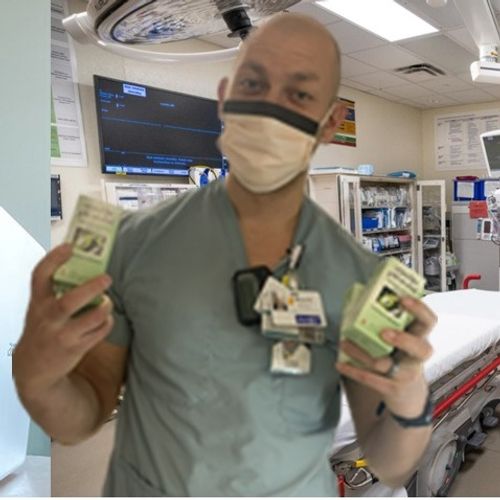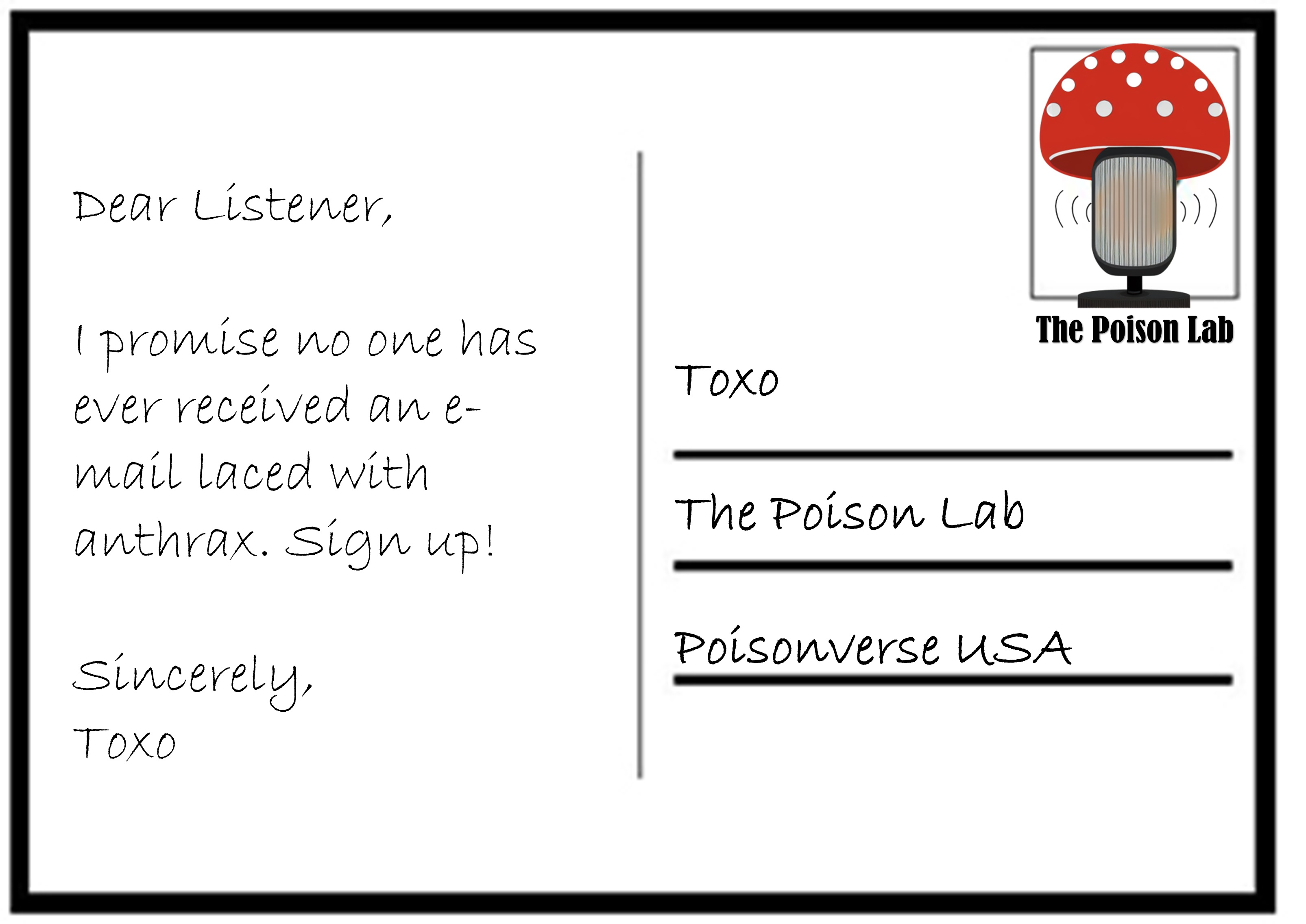Episode 19
A Prescription for Heartache (& Seizures) (Bupropion)
What Do Bath Salts, Face-Eating Zombies, and Antidepressants Have in Common?
In this episode of The Poison Lab, Ryan is joined by Dr. Filip, Dr. Olives, and Dr. Reyes to discuss a unique and heartbreaking poisoning scenario involving an antidepressant now recognized as the #1 cause of major life-threatening effects in antidepressant overdoses in the U.S. Check out the mini-episodes for more details!
Key Highlights
This Antidepressant:
- #1 Cause of Major (Life-Threatening) Effects in overdoses reported to U.S. Poison Centers.
- Difficult to manage due to:
- Delayed seizures.
- Unique cardiogenic shock in overdose.
- Wide complex arrhythmia refractory to sodium bicarbonate.
- Potential interference with brain death testing.
Mechanism of Toxicity
- Increases dopamine and norepinephrine.
- Blocks gap junctions in cardiac myocytes:
- Rohr 2004: Gap junction blockade causes a wide QRS.
- Vink 2004: Connexin 43 is critical for cardiac signal transmission.
- Callier 2012: Similar effects on cardiac action potential as other gap junction blockers.
- Burnham 2014: Bupropion's IC50 for connexin 43 is >50 µM, higher than fluoxetine and lamotrigine.
- Shaikh Quereshi 2014: Bupropion interferes with connexin 43 production/localization in chicken cardiac myocytes at >50 µM.
Clinical Effects
Sympathetic Toxidrome
- Seizures: Delayed, typically occurring 8–24 hours post-ingestion.
- Tachycardia: May precede seizures but could be masked by co-ingestions.
Takeaway (TL;DR):
- Patients often present with neurologic symptoms and tachycardia before seizures.
- Do not discharge patients without consulting a toxicologist or poison center regarding observation time.
- Avoid dismissing tachycardia and anxiety as situational in bupropion overdose cases.
Key Literature Insights
- Shepherd 2004: Seizures primarily associated with sustained-release products; often preceded by neuropsychiatric symptoms.
- Starr 2009:
- XL products linked to seizures.
- Tachycardia, tremor, and agitation are predictors.
- Seizures occurred as late as 24 hours; 25% occurred after 8 hours.
- Offerman 2020:
- Tachycardia >120 bpm predicts seizures.
- Late seizures occurred only in symptomatic patients.
- Prehospital seizure correlated with cardiac arrest.
- Rianprakaisang 2021:
- QTc and HR >140 bpm predict seizures.
- ToxIC review confirmed tachycardia as a risk factor.
Treatment Overview
Decontamination
- Whole bowel irrigation or activated charcoal may be needed for large ingestions.
Supportive Care
- Airway Management: Intubate if compromised.
- Benzodiazepines for agitation or seizures.
- Use GABA-ergic AEDs for status epilepticus.
Cardiogenic Shock
- Sodium bicarbonate for wide QRS (though may be refractory).
- Inodilators/Vasopressors for shock.
- ECMO for refractory shock or arrhythmias.
Observation Times
- Late seizures can occur up to 24 hours post-ingestion.
- Discuss observation times with a toxicologist.
Additional Considerations
- Severe toxicity can mimic brain death—send for analytical confirmation if possible.
- Limited enhanced elimination options due to high protein binding.
- Consider IV lipid emulsion if the patient is peri-arrest.
Don't Fall into Traps:
- All ingestions are unique. Collaborate with a toxicologist to guide management and avoid pitfalls.
Rohr 2004: "Role of gap junctions in the propagation of the cardiac action potential"
Vink 2004: "Connexin 43 is the most important protein for connexon formation and cardiac signal transmission"
Callier 2012: "QRS widening and QT prolongation under bupropion: a unique cardiac electrophysiological profile"
Shaikh Quereshi 2014: "Bupropion interferes with connexin43 production and localization in chicken cardiac myocytes at concentrations >50 µM"
Shepherd 2004: "Seizures after overdose of sustained-release bupropion"
Starr 2009: "Seizures in extended-release bupropion overdoses"
Offerman 2020: "Predictors of seizures and death in bupropion overdoses: a 10-year retrospective study"
Rianprakaisang 2021: "Risk factors for seizures in bupropion overdose: a ToxIC database study"
Support the show
Review the show where ever your listening
Get Messages from Toxo (Join the Newsletter!)
- Ad free episodes
- Bonus content and early access
- Discounts and give aways on GOTA PICCEM Mushroom card game
The GOTTA PICCEM Poisonous Mushroom Game!
The Poisonus Fungus Amongus Children's Book!
Tox trinkets (Rep the show at home!)
Reach the show
- Email: Toxtalk1@gmail.com
More Show Resources


